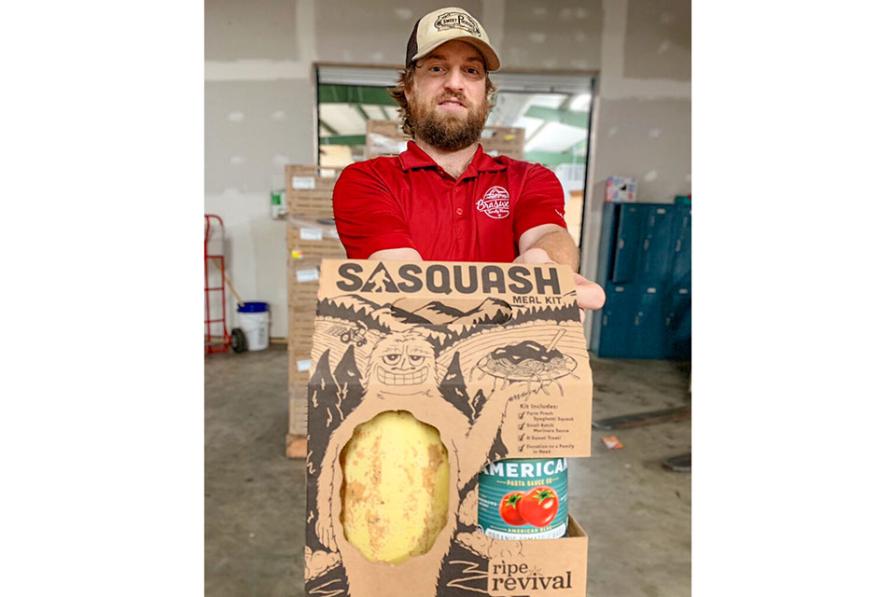A Healthy Dose of Smart Farm Marketing Can Do a Grower Good
Eat your vegetables! They’re good for you. Though scientific studies validate mom’s mantra, there are still challenges getting people to eat more vegetables. For one, far too many families struggle to gain access to vegetables.
Our poorest communities are also likely food deserts, having no groceries with well-stocked produce departments within easy walking distance or on a public transit route. Food insecurity puts many U.S. households at risk of long-term health impacts due to poor diets.
Vegetable Prescriptions
Health professionals recognize this lack of access to fruits and vegetables impacts the well-being of their patients. Around the country, university and hospital researchers, doctors, and community organizations are working to increase the availability and affordability of produce.
Some set up on-site farmers’ markets or delivery programs, sending their patients to fill a ‘prescription’ as they leave.
Rutgers University researchers and Extension specialists, along with graduate and medical students, launched Veggie Rx. After a consultation, patients at the Robert Wood Johnson Medical School’s HIPHOP Promise Clinic receive “prescriptions” (vouchers) for fruits and vegetables to “fill” (redeem) for free at the New Brunswick Community Farmers’ Market.
Veggie Rx serves up more than nutritious food, says Program Co-Founder Extension Specialist Dr. Cara Cuite. “It’s also helping to foster a culture of health and connection within the city’s underserved communities,” she says.
“Participants are learning that medication is not the only answer to treat high blood pressure, diabetes, or high cholesterol,” adds Founding Partner Dr. Karen WeiRu Lin, the clinic’s faculty advisor. “Fresh vegetables and fruits are promoting health.”
Making “the whole program more convenient — so that people can get a health consultation, voucher, and produce all in one outing,” as Cuite puts it, adds value for both the patients and growers supplying produce.
This year, the grant is giving extra produce and enough healthy food for everyone in the household, Cuite says.
The USDA Gus Schumacher Nutrition Incentive Program (GusNIP) funds these projects, including ‘double-bucks’ — farmers market vouchers matching the value of SNAP (Supplemental Nutrition Assistance Program).
Unfortunately, when grants run out, so do the benefits. The next step is working on insurance reform so a prescribed dose of fresh vegetables is covered just like any other prescription.
Healthy Value-Added Opportunities
Vegetable growers across the country are continuously frustrated when production is so good that supplies overrun markets. Then prices drop too low to cover the cost of harvest. Out comes the disk instead of the harvest crew.
Taking to his LinkedIn blog, Zachary Andrade, President at Spinaca Farms in California, wrote about a “career-shifting tractor moment.” Faced with a field full of broccoli stems and beet tops to plow under, he realized there was another way.
Many consumers want the benefits of more fresh produce in their diets if there is an easy way to do it.
Zach already produced dehydrated vegetable powders for use as ‘nutraceuticals’ — additives that the food industry uses to incorporate the nutrients from produce into other foods. Much of the industry was using off-grade imported inputs of questionable quality. Why not put his own high-quality, but otherwise unmarketable, produce into a nutrient-dense, multi-use product to sell directly to health-conscious consumers?
The Result? BoomVeg Vegetable Powders
“[I take] the off-grades and unmarketable parts of vegetables reforming them into aesthetically pleasing, easy to consume, nutritious, healthy products,” Zach says. “Most importantly, they’re not competing directly in the produce aisle.”
He told me attempts to put non-aesthetically pleasing (ugly) produce next to No.1s sends mixed signals. It confuses them with “ugly is good, pretty is not” messages.
A Different Ugly Food Opportunity
On the opposite side of the country in North Carolina, Will Kornegy and his sister Laura Heam, like Zach, are also producing easy-to-use food additives that pack a nutritional punch.
The Kornegays founded Ripe Revival with a mission to bridge “the gap between excess and access.” It finds homes for perfectly edible “rejects, misfits, imperfect, ugly, deformed, unmarketable excess.”

Ripe Revival’s “Sasquash” is a clever camouflage for those skin-deep scars. Packaged in a meal kit with a jar of tomato sauce, the marred fruit sticks out as Big Foot’s belly. As Will Kornegy asks in his post, “What kid would let a parent walk past that without putting it in the shopping cart? What parent wouldn’t want to use Sasquash … to educate children and support families fighting food insecurity?”
In addition to creative packaging of off-grades, Ripe Revival specializes in extracting the phytonutrients — “health-promoting and disease-preventative active compounds” — into bite-size gummies.










